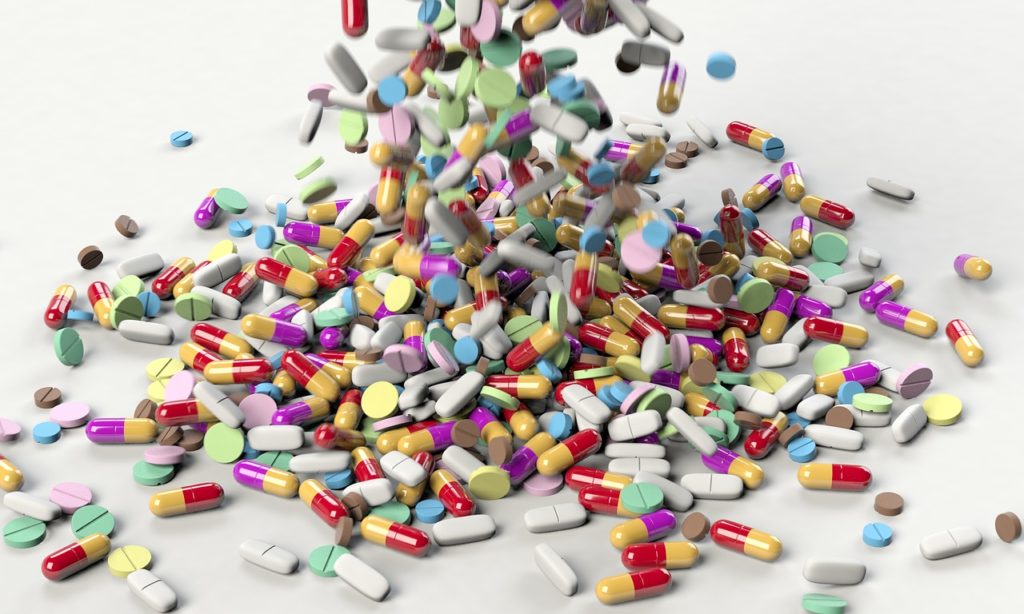Pharmaceutical sector in India accounts for major share in the global fine chemicals market. The country is the largest provider of generic medicines globally. The Indian pharmaceutical sector supplies more than 50% of the global demand for various vaccines. India also fulfills nearly 40% of the demand for generic medicines in the United States and 25% of all medicines in the UK. The country also has a large pool of scientists and engineers who have the potential to steer the industry to greater heights. Currently, more than 80% of the antiretroviral drugs used globally to combat AIDS are supplied by Indian pharmaceutical firms. The country is the source of nearly 60,000 generic brands across 60 therapeutic categories. India manufactures more than 500 different Active Pharmaceutical Ingredients (APIs). The country has more than 2000 WHO-GMP approved pharma plants along with 253 European Directorate of Quality Medicines (EDQM) approved plants with modern technologies.
The Indian pharmaceutical sector ranks 3rd globally for production in volume and 14th by value. The country’s domestic pharmaceutical market was valued at nearly USD 20 billion in the year 2019. The value of the country’s pharmaceutical market witnessed a rise of around 9% from 2018. The country is home to more than 3,000 pharmaceutical companies with a strong network of over 10,500 manufacturing facilities. The Indian pharmaceutical sector is projected to grow to USD 100 billion by the year 2025. The medical devices market is expected to grow to USD 25 billion during the same year. Pharmaceutical exports from India were valued at USD 16.3 billion in the year 2020. The export included bulk drugs, intermediates, biologicals, herbal products along surgical products. The pharmaceutical exports from India reach more than 200 nations including the highly regulated markets of the US, Japan, Australia, and West Europe. The Indian biotechnology industry was valued at USD 64 billion in the year 2019. This sector is projected to reach USD 150 billion by 2025. The Indian biotechnology industry comprises bio-services, along with biopharmaceuticals, bioinformatics, and bio-agriculture. The Indian health care system includes Yoga, Ayurveda, Naturopathy, Homeopathy, etc., collectively known as AYUSH. AYUSH also deals with herbal, ergonomic, and traditional medicine-based treatments for ailments.
Investments and Recent Developments
The Union Cabinet has amended the existing Foreign Direct Investment (FDI) policy for the pharmaceutical market. The policy allows FDI up to 100% under the automatic route to manufacture medical devices. The drugs and pharmaceutical sector drew cumulative FDI inflow worth nearly USD 17 billion during April 2000 and September 2020.
There have been plenty of recent developments in the Indian pharmaceutical sector. Piramal Pharma Solutions plans to invest USD 32 million to expand its facility in the US. Affordable medicines under the PM act achieved sales of around USD 7.4 million in April 2020. In October 2020, 6 generic drug makers including Dr. Reddy’s Laboratories, Glenmark Pharmaceuticals, Torrent Pharmaceuticals, etc signed a deal with a state in Mexico. They aim at establishing a large pharmaceutical cluster for the production and logistics in Mexico.
India’s role in the COVID-19 pandemic
COVID-19 pandemic is not only a hard-hitting global health catastrophe it has also affected the economies in various countries. The pandemic proved that India is dependent on imports for essential medical equipment. The domestic process for certain medicines increased sharply due to the irregularities in supply. The low availability of key starting material (KSM) highlighted the weak points of the Indian pharmaceutical sector.
However, India has successfully developed 2 vaccines to combat the virus. COVAXIN is India’s first indigenous vaccine, developed by Bharat Biotech. This COVID-19 vaccine was developed in collaboration with the Indian Council of Medical Research (ICMR). COVAXIN is an inactivated vaccine, developed from killed coronaviruses. This makes the vaccine safe to be injected into the body. Bharat Biotech used a sample of the coronavirus isolated by India’s National Institute of Virology. COVISHIELD is being manufactured locally by the Serum Institute of India, the world’s largest vaccine manufacturer. This vaccine is developed by the University of Oxford along with its spin-off company Vaccitech. This vaccine has been developed from a weakened version of the common cold from chimpanzees. It can be stored, transported, and handled at normal refrigerated temperatures. COVISHIELD has a shelf life of more than 6 months.
India launched its vaccine drive in early January. Currently, nearly 30 million people have been vaccinated. Healthcare and frontline workers were given priority during the first phase, followed by senior citizens. India has also supplied the vaccine to several other countries. The country has shipped tens of thousands of free doses of the COVID-19 vaccine to other countries.
The way forward
India needs to adopt proactive measures to ensure an all-conducive supply chain. This will boost local manufacturing along with reducing the dependence on external factors. Nearly 35-40% of the manufacturing capacity is idle. It is important for the government to efficiently use the existing API units. The driving factors for the growth of the domestic market are attributed to the higher burden of diseases in India. The local production of APIs is incentivized through the rising population of the country. This enables pharmaceutical companies to cater to the needs of the country and enter the international markets. Several countries are willing to invest in the Indian market for the supply of the COVID-19 vaccine and medical equipment. This can prove to be a chance for India to become self-sufficient in the pharmaceutical market of the chemical industry.

